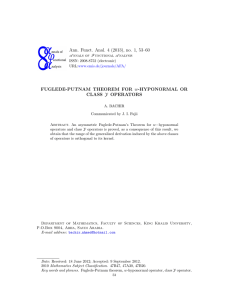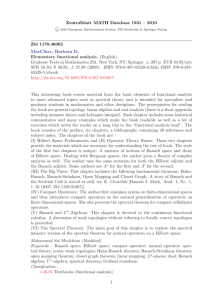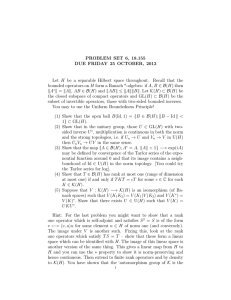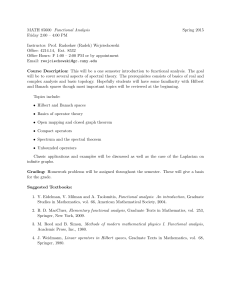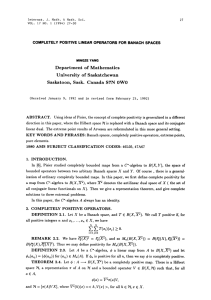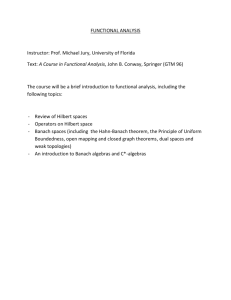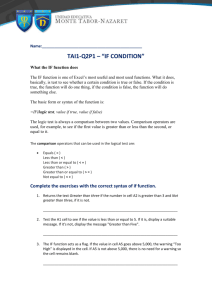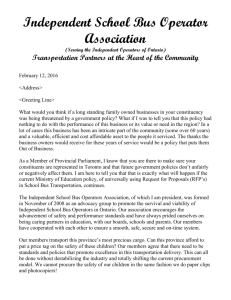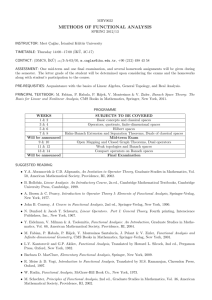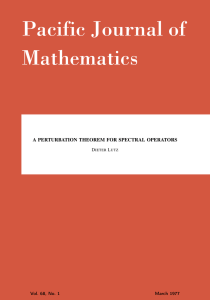Math 231B Functional Analysis Syllabus - SJSU Fall 2010
advertisement
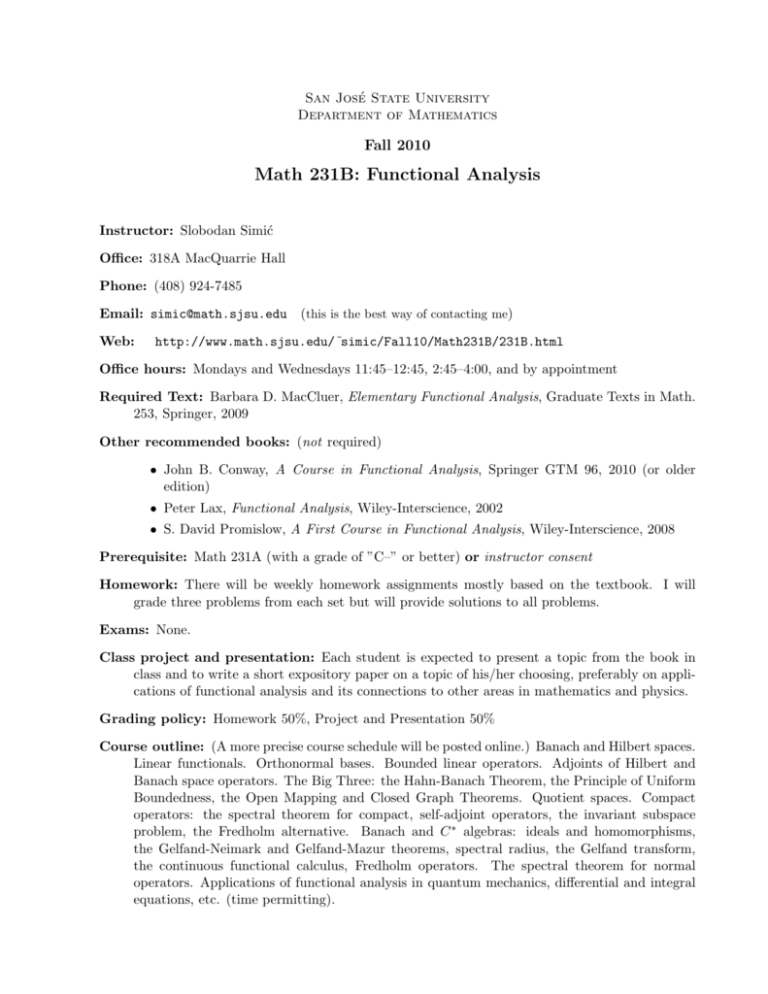
San José State University Department of Mathematics Fall 2010 Math 231B: Functional Analysis Instructor: Slobodan Simić Office: 318A MacQuarrie Hall Phone: (408) 924-7485 Email: simic@math.sjsu.edu (this is the best way of contacting me) Web: http://www.math.sjsu.edu/˜simic/Fall10/Math231B/231B.html Office hours: Mondays and Wednesdays 11:45–12:45, 2:45–4:00, and by appointment Required Text: Barbara D. MacCluer, Elementary Functional Analysis, Graduate Texts in Math. 253, Springer, 2009 Other recommended books: (not required) • John B. Conway, A Course in Functional Analysis, Springer GTM 96, 2010 (or older edition) • Peter Lax, Functional Analysis, Wiley-Interscience, 2002 • S. David Promislow, A First Course in Functional Analysis, Wiley-Interscience, 2008 Prerequisite: Math 231A (with a grade of ”C–” or better) or instructor consent Homework: There will be weekly homework assignments mostly based on the textbook. I will grade three problems from each set but will provide solutions to all problems. Exams: None. Class project and presentation: Each student is expected to present a topic from the book in class and to write a short expository paper on a topic of his/her choosing, preferably on applications of functional analysis and its connections to other areas in mathematics and physics. Grading policy: Homework 50%, Project and Presentation 50% Course outline: (A more precise course schedule will be posted online.) Banach and Hilbert spaces. Linear functionals. Orthonormal bases. Bounded linear operators. Adjoints of Hilbert and Banach space operators. The Big Three: the Hahn-Banach Theorem, the Principle of Uniform Boundedness, the Open Mapping and Closed Graph Theorems. Quotient spaces. Compact operators: the spectral theorem for compact, self-adjoint operators, the invariant subspace problem, the Fredholm alternative. Banach and C ∗ algebras: ideals and homomorphisms, the Gelfand-Neimark and Gelfand-Mazur theorems, spectral radius, the Gelfand transform, the continuous functional calculus, Fredholm operators. The spectral theorem for normal operators. Applications of functional analysis in quantum mechanics, differential and integral equations, etc. (time permitting). Main goals: The main goal of the course is for students to acquire solid understanding of the basic results and techniques of linear functional analysis. We will try to cover most of the textbook. The culminating experience of the course is supposed to be the spectral theorem for normal operators, and the theory of C ∗ algebras. We will also emphasize as much as possible the connections between functional analysis and other branches of mathematics and physics (in particular quantum mechanics). Participation: During class please feel free to stop me at any time and ask questions. I encourage and greatly appreciate students’ participation. Feedback: I appreciate constructive feedback which you can give me via the anonymous feedback form on the class web page, by email, or in person. Academic integrity: From the Office of Student Conduct and Ethical Development: Your own commitment to learning, as evidenced by your enrollment at San José State University, and the Universitys Academic Integrity Policy, require you to be honest in all your academic course work. Faculty are required to report all infractions to the Office of Student Conduct and Ethical Development. The policy on academic integrity can be found at http://sa.sjsu.edu/student− conduct. Campus policy in compliance with the Americans with Disabilities Act: If you need course adaptations or accommodations because of a disability, or if you need special arrangements in case the building must be evacuated, please make an appointment with your instructors as soon as possible, or see them during office hours. Presidential Directive 97-03 requires that students with disabilities register with DRC to establish a record of their disability. Class attendance: According to University policy F69-24, Students should attend all meetings of their classes, not only because they are responsible for material discussed therein, but because active participation is frequently essential to insure maximum benefit for all members of the class. Attendance per se shall not be used as a criterion for grading. For more details, see the course web page.
